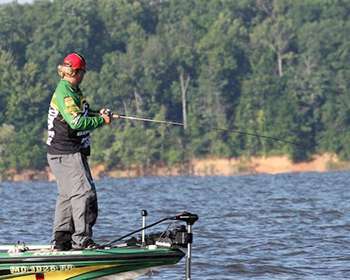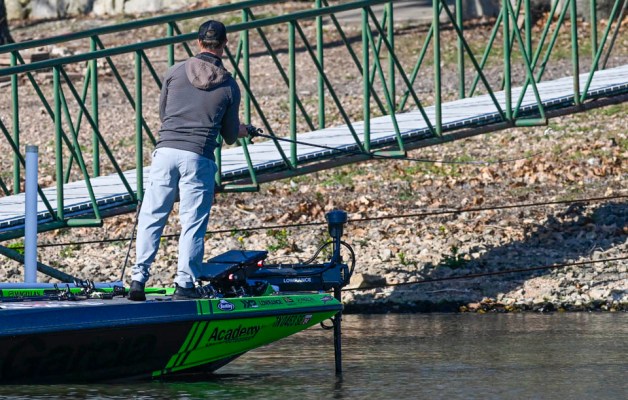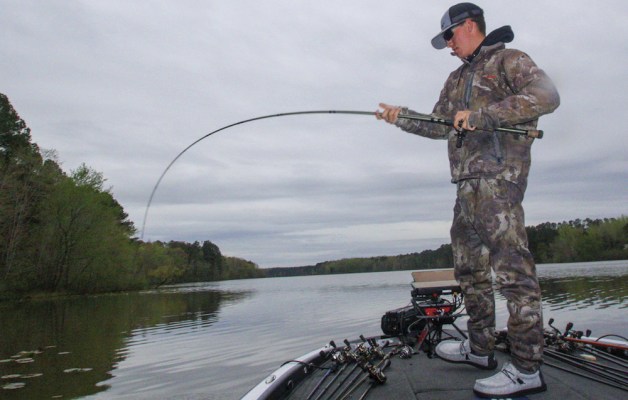
There is perhaps no other bait more synonymous to bass fishing than the jig. However, for the last several years, a debate between jig purists and their more conventional cousins has raged — should the jig trailer be pork or plastic?
To Elite Series pro Tim Horton, there's little to debate. Plastic trailers are, simply put, the only realistic option.
"I think when pork was so popular, we didn't have a lot of bulkier plastics to slow a jig's fall," he says. "To be honest, because of the emergence of new plastics, I haven't used pork in probably 10 years."
Horton submits that while plastic may not emulate live-prey movements to the same degree as pork, the trade-off in hook-up percentage is well worth it. "The thing that scares me about using pork is that it has a tendency to turn on the hook," he points out. When that happens, Horton explains that the typical result is a missed opportunity. "You wind up with the point of the hook buried in the pork rather than the bass' lip, which is never a good thing to have happen."
The Alabama pro believes that he's able to get just as many bites with plastic trailers, though he concedes that there is a subtle difference between plastic and pork that bass can find irresistible. "It's hard to get the same kind of action with plastic that you can with pork, but with the bulky plastic trailers available today, you can really slow the fall rate of a jig," he says.
Horton submits that he lets the water clarity determine how bulky a trailer he chooses. "In a clear water situation, I definitely want a fast fall rate because I don't want the bass to get a good look at my jig," he says. "In murkier water, I can see pork's value because of the increased profile, but I still believe that you can get just as many bites with a plastic trailer even though you might be giving up some action in exchange."
If you're an "all plastics" angler, Horton recommends a bulky trailer in the winter because bass have less of a tendency to chase prey. "Bulk is important when the water is cold in the fall and winter," he explains. "When I'm around largemouth in the winter months, I want a bulky piece of plastic as a trailer to slow the fall, but most of the other times of the year I use a trailer with as much action as possible."
"I love flipping docks on the Coosa River for spotted bass where you need some flash and movement for the jig to really get a lot of attention," he says. "In those scenarios I'll almost always use a craw-styled trailer on my jigs because of the action they provide. I want those claws flapping around and really creating a lot of flash."




